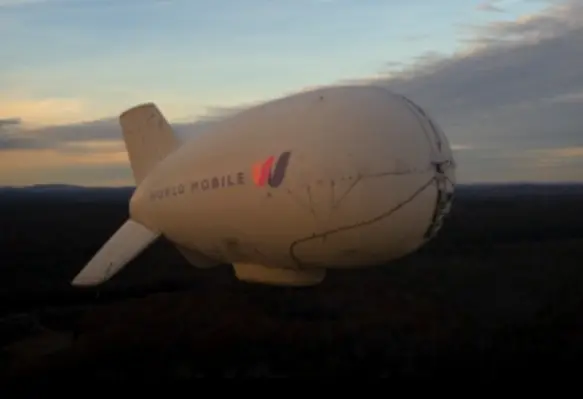World Mobile has announced the launch of its unique hybrid mobile network supported by low altitude platform balloons in Zanzibar, as it plans to roll-out its innovative service providing reliable mobile internet to more people at lower cost throughout Africa
World Mobile’s balloons will be the first to officially launch in Africa for commercial use, providing a more cost-effective way to provide digital connection to people compared to rolling out legacy internet infrastructure.
The remotely controlled aerostat balloons are powered by solar panels, inflated by helium and tethered to the ground. Once airborne, they act as floating cellular base stations transmitting radio signals to ground stations and personal devices.
The project – the first since a successful US$40mn raise – is expected to deliver coverage and access to the digital economy for over one million people in Zanzibar by end of 2023.
It is the first step in World Mobile’s mission to help bring nearly four billion people online before 2030 in line with the UN and World Bank’s SDGs.
Data from the United Nations shows almost half the world’s population, 3.7 billion people, the majority of them women, and most in developing countries, are still offline. Micky Watkins, CEO of World Mobile, said, “Zanzibar will become the world’s first smart region powered by World Mobile, connecting businesses, schools and society as a whole.”
“Mobile internet services are becoming quite popular in Zanzibar, like everywhere else around the globe. These services bring online access to information and communication to the masses through their mobile phones, helping bridge the existing rural and urban digital gap. More crucially, however, these services are singularly responsible for promoting financial inclusion by allowing the banked and underbanked in Zanzibar to participate fully in the emerging digital economy,” added Said Seif Said, director general of Zanzibar’s e-government agency.
Beyond Zanzibar, World Mobile is in discussions with government officials in Tanzania and Kenya, as well as other territories underserviced by traditional mobile operators.
It plans to have 20 mesh sites – local Wi-Fi nodes – rolled out by January 2022 and 120 sites during the first six months of 2022 including the first aerostat balloon launch.
The roll out will cover approximately 75% of Unguja Island and provide access to the wider digital economy including communications, e-commerce, finance, healthcare, and education to the islands’ 896K people.
The already has agreements in place with the Zanzibarian government to provide connectivity for 300 schools, and a four-step plan is in place to unlock Zanzibar’s Blue Economy, across marine industries.






















